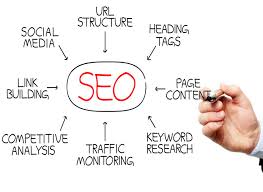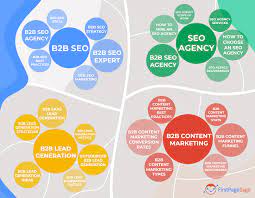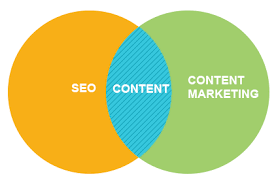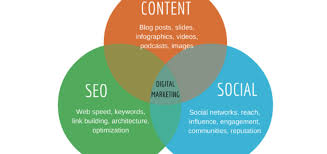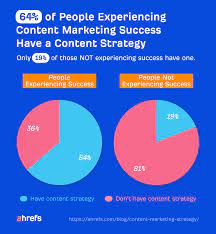Unlocking Success: The Art of Crafting SEO Optimised Content
The Power of SEO Optimised Content
In the digital age, having a strong online presence is crucial for businesses to succeed. Search Engine Optimization (SEO) plays a vital role in ensuring that your content is not only visible but also ranks well on search engine results pages. One key aspect of effective SEO is creating optimised content that resonates with both search engines and your target audience.
What is SEO Optimised Content?
SEO optimised content refers to web content that is strategically crafted to improve search engine visibility. This involves incorporating relevant keywords, meta tags, and other SEO best practices to help search engines understand the context and relevance of your content.
The Benefits of SEO Optimised Content
Improved Search Engine Rankings: By creating SEO optimised content, you increase the likelihood of your website ranking higher on search engine results pages (SERPs). This can lead to increased organic traffic and better visibility for your brand.
Enhanced User Experience: Optimising your content for SEO also enhances the overall user experience. By providing valuable and relevant information to your audience, you can increase engagement and encourage visitors to spend more time on your website.
Increased Credibility and Authority: Well-optimised content not only attracts more visitors but also helps establish your brand as a credible authority in your industry. This can build trust with your audience and differentiate you from competitors.
Tips for Creating SEO Optimised Content
Conduct Keyword Research: Identify relevant keywords that align with your business goals and target audience. Use tools like Google Keyword Planner to discover high-ranking keywords in your industry.
Write High-Quality Content: Focus on creating valuable, informative, and engaging content that addresses the needs and interests of your target audience. Avoid keyword stuffing and ensure that your content is well-structured.
Optimize Meta Tags: Include relevant keywords in title tags, meta descriptions, and heading tags to improve visibility in search results.
In Conclusion
SEO optimised content is a powerful tool for improving online visibility, attracting organic traffic, and establishing credibility in the digital landscape. By following best practices and staying updated on SEO trends, you can create compelling content that resonates with both search engines and users alike.
Top 6 Benefits of SEO-Optimised Content: Boost Rankings, Traffic, and Credibility
- Improved search engine rankings
- Increased organic traffic
- Enhanced user experience
- Established brand credibility
- Higher conversion rates
- Long-term visibility and sustainability
Challenges of SEO-Optimised Content: Time Constraints, Keyword Overload, and Creativity Limits
- 1. Time-Consuming
- 2. Keyword Overload
- 3. Constant Updates
- 4. Potential for Over-Optimisation
- 5. Limited Creativity
Improved search engine rankings
Enhancing search engine rankings through SEO optimised content is a fundamental advantage that can significantly impact a website’s visibility and online success. By strategically incorporating relevant keywords, meta tags, and other SEO best practices, businesses can increase their chances of appearing higher in search engine results pages (SERPs). This improved visibility not only drives more organic traffic to the website but also boosts brand awareness and credibility, ultimately leading to greater opportunities for engagement and conversions.
Increased organic traffic
One significant benefit of SEO optimised content is the potential for increased organic traffic to your website. By strategically incorporating relevant keywords and following SEO best practices, your content becomes more visible to search engines, leading to higher rankings on search engine results pages. This improved visibility can attract a larger audience of users actively searching for information related to your business or industry, ultimately driving more organic traffic to your site without the need for paid advertising.
Enhanced user experience
Enhanced user experience is a significant benefit of SEO optimised content. By tailoring content to be informative, engaging, and relevant to the target audience, businesses can create a more enjoyable and valuable experience for website visitors. When users find the content they are looking for easily and efficiently, they are more likely to stay on the site longer, explore further, and ultimately convert into customers. This positive user experience not only improves engagement but also builds trust in the brand, leading to long-term customer relationships and loyalty.
Established brand credibility
Established brand credibility is a significant advantage of SEO optimised content. By creating high-quality and relevant content that ranks well in search engine results, businesses can showcase their expertise and authority in their industry. When users consistently find valuable information on a website, it builds trust and credibility for the brand. This credibility not only attracts more visitors but also sets the brand apart as a reputable source of information, ultimately leading to increased customer loyalty and engagement.
Higher conversion rates
One significant advantage of SEO optimised content is its ability to drive higher conversion rates. By tailoring your content to align with the search intent of your target audience and incorporating relevant keywords strategically, you can attract qualified leads who are more likely to engage with your website and take desired actions, such as making a purchase, signing up for a newsletter, or filling out a contact form. This targeted approach not only increases the likelihood of converting visitors into customers but also enhances the overall effectiveness of your digital marketing efforts.
Long-term visibility and sustainability
Achieving long-term visibility and sustainability is a significant advantage of SEO optimised content. By implementing effective SEO strategies and creating content that aligns with search engine algorithms, businesses can secure enduring online presence. This proactive approach not only ensures consistent visibility in search results over time but also contributes to the sustainability of organic traffic growth. Investing in SEO optimised content allows businesses to establish a strong digital footprint that can withstand fluctuations in the competitive online landscape, ultimately leading to sustained success and brand recognition.
1. Time-Consuming
Crafting SEO optimised content can be a time-consuming endeavour due to the meticulous research, strategic planning, and precise implementation it demands. From identifying relevant keywords to structuring content in a search engine-friendly manner, each step requires careful attention and effort. This time investment is essential to ensure that the content aligns with SEO best practices and effectively targets the intended audience. While the process may be labour-intensive, the long-term benefits of improved search engine rankings and increased organic traffic make the time spent on creating SEO optimised content a worthwhile investment for businesses looking to enhance their online visibility.
2. Keyword Overload
An important drawback of SEO optimized content is the risk of keyword overload. When content creators excessively focus on incorporating keywords to boost search engine rankings, it can lead to the creation of unnatural-sounding content that may not resonate well with readers. This practice not only compromises the quality and readability of the content but also detracts from the overall user experience. Balancing keyword optimization with engaging and informative writing is crucial to ensure that the content remains valuable and appealing to both search engines and human audiences.
3. Constant Updates
In the realm of SEO optimised content, one notable challenge is the need for constant updates. SEO algorithms are in a state of perpetual evolution, demanding regular adjustments and refinements to ensure that optimised content remains effective. Keeping pace with these dynamic changes can be a time-consuming task, as strategies that were effective yesterday may not yield the same results tomorrow. Adapting to the ever-shifting landscape of SEO algorithms is essential to maintaining visibility and relevance in the digital sphere.
4. Potential for Over-Optimisation
One significant drawback of SEO optimised content is the potential for over-optimisation. When content is saturated with excessive keywords or tags in an attempt to manipulate search engine rankings, it can backfire. Search engines may penalise websites that engage in such practices, resulting in lower visibility and decreased organic traffic. Striking a balance between optimising content for SEO and maintaining its quality and relevance is crucial to avoid falling victim to penalties and algorithm changes that could harm your online presence in the long run.
5. Limited Creativity
Adhering strictly to SEO guidelines can sometimes limit the creative freedom of content creators, potentially hindering the quality and originality of the content produced. When content is overly focused on keywords and search engine requirements, there may be less room for innovative or unconventional approaches that could truly engage and captivate the audience. This limitation on creativity could result in content that feels formulaic or lacks the unique flair that can make it stand out in a crowded digital landscape. Balancing SEO optimisation with creative expression is essential to ensure that content remains both search engine-friendly and compelling for human readers.
